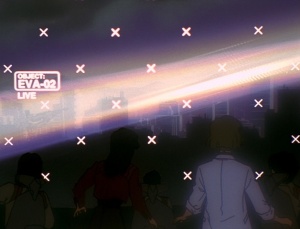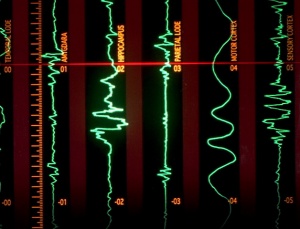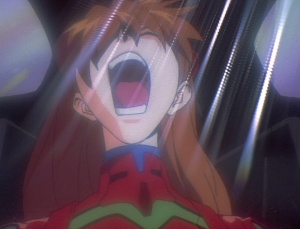User:Ran1
What is this?
This is not actually user page, for all the blissful wanderers out there. It is a "pitch" page for an critical essay on Neon Genesis Evangelion and its use of montage. Currently, I am in the beginning stages of writing the essay, and I will be posting bits and pieces of the essay as I go along, in hopes of getting feedback from the Wiki Users.
Current Status
As of Feb. 24, 2010: Posting the intial outline/preface/proposal
As of Feb. 25, 2010: Going into a bit more detail in the montage introduction, images added.
The Essay
Evangelion is usually looked at in a narrative sense, but it is necessary to also assess it at the technical level of cinematography, and specifically in this essay, at the level of montage. There are several montage sequences in the series, but they are most notable and pronounced in Episodes 14, 22, and 26'. Though there are others, the montage sequences in these three episodes will be broken down in the first edition of this critical essay.
Introduction to the Classical Theory of Montage:
The montage theory was developed by Soviet filmmaker/theorist Sergei Eisenstein in 1922 with his seminal cinematic treatise A Dialectic Approach to Film Form. This treatise, in summary, presented the theory in these terms:
- 1.The images in the montage are not there for the explicit reason of existing as separate identities. The key aspect of the montage sequence is that the images are all linked to one another. Each image's meaning builds and is built upon by the previous and consecutive images.
- 2.According to Eisenstein, the montage theory solved the “specific problem of cinema”- medium specificity.
- 3.The montage is, in essence, is “a conflict between images” in which the incomplete subtext from the previous two images “collide” together, and present a newer, complete meaning at the end of the montage.
An application of this theory in Evangelion would be this sequence of shots:
How versed is Anno in in these techniques?
With these fundamental aspects in mind, let it be known that it is currently unclear whether or not Anno had ever come across any of Eisenstein's theoretical papers. Any good student of film or animation should at some point, because his theories were extremely important to the development of modern cinema, but it should be realized that the status of Anno as a good films student is a matter of question – considering that he admitted to being familiar with Jean Luc Godard, another important montage theorist, but became familiar with several Japanese filmmakers who used Godard's techniques in a similar fashion.
The montage, and the theory behind it, however, has been more or less assimilated into the universal film-making language, however. To say that these montage theory is irrelevant due to the fact that it is still in question about Anno's familiarity with the subject, it is most likely the case that he was knowledgeable about it just by being able to make one.
Episode 22
The montage sequences that are most notable are the ones presented in the "mind-rape" scenes, in which Asuka has her deepest, darkest memories brought to the surface, further compounding her insecurities. As her forced introspection reaches the point of climax, the viewer is presented with a total deconstruction of Asuka in every sense of the word. We see her thoughts, desires, and feelings laid before us, and there reaches a point in which we see the beginning of Asuka's downward spiral, her rejection of The Other, most notably manifest in three beings: Her mother, Kaji, and Shinji.
| Montage Sequence | ||||
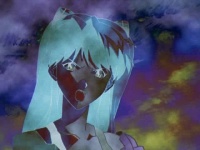 |
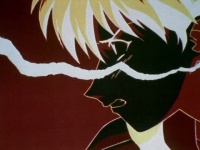 |
 |
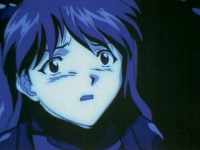 |
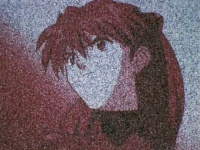
|
 |
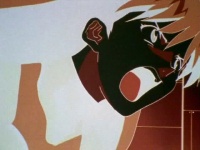 |
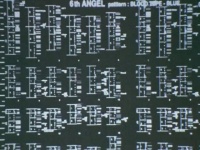 |
 |
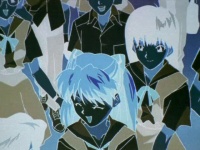
|
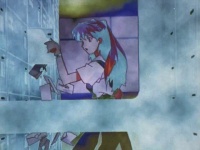 |
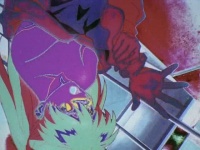 |
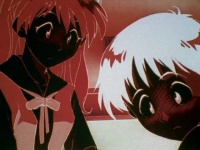 |
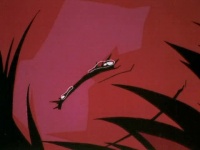 |
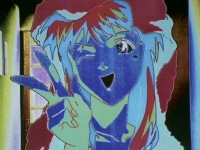
|
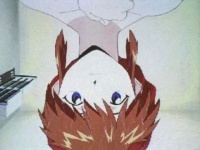 |
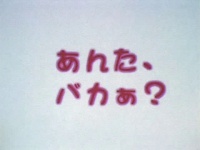 |
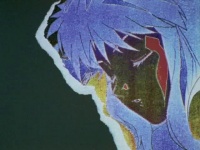 |
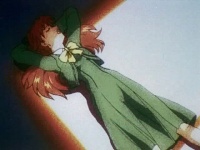 |
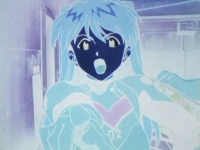
|
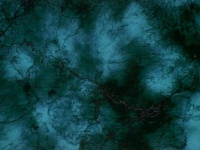 |
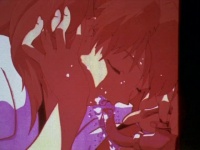 |
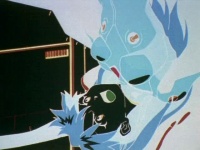 |
||
|
Episode #22 Cuts | ||||
